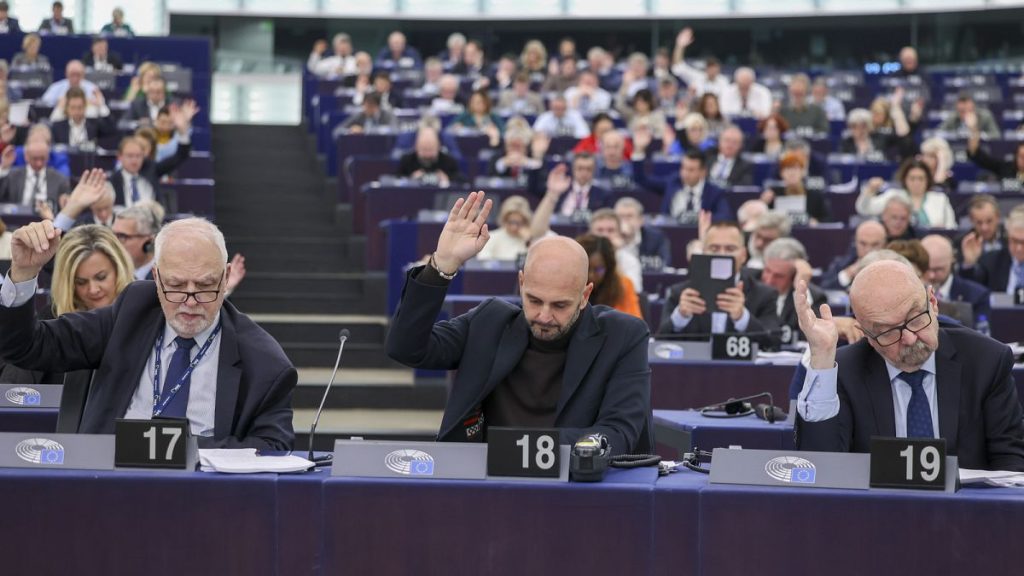The European Conservatives and Reformists (ECR) party has decided not to field a lead candidate in the upcoming European elections, denouncing the Spitzenkandidaten process as “useless.” The party believes that the process, which sees each major political party nominate a lead candidate for the European Commission, is not fit for purpose. This decision came after the adoption of the party’s electoral manifesto in Strasbourg, chaired by President Giorgia Meloni and attended by former Polish Prime Minister Mateusz Morawiecki. Despite some internal differences in opinion, the ECR remains adamant in its stance against the Spitzenkandidaten system.
The ECR, which consists of 20 hard-right conservative parties from across Europe, including Italy’s ruling Fratelli d’Italia, Spain’s Vox, and Poland’s Law and Justice (PiS) party, is projected to gain around 75 seats in the upcoming elections. The party’s decision not to nominate a lead candidate has been met with mixed reactions within the group, with some advocating for a leader to spearhead the campaign. The ECR has not completely ruled out potential cooperation with the centre-right European People’s Party (EPP) in the next legislature, although certain conditions would need to be met, such as the exclusion of Viktor Orbán’s Fidesz party, which is rumored to be in talks with the ECR.
The ECR’s manifesto focuses on turning the Green Deal, a climate-neutral legislation package, more in favor of ordinary people, farmers, breeders, fishermen, citizens, and businesses. The party aims to support a more balanced and localized climate strategy that prioritizes socio-economic well-being and addresses the concerns of various stakeholders. In response to mounting protests from European farmers over environmental regulations, the ECR is also advocating for better global trade relations and diversification to reduce economic dependencies and enhance competitiveness.
Migration is another key issue for the ECR, with the party calling for a comprehensive border security strategy covering all points of entry, including air, land, and sea borders. Despite some Polish members rebelling, the party’s MEPs mostly supported the recent Pact on Migration endorsed by the parliament. The manifesto underscores the party’s commitment to reducing the powers of Brussels and upholding national sovereignty. During the meeting in Strasbourg, President Meloni emphasized the importance of defending national powers against any attempts to diminish them, while former Prime Minister Morawiecki rejected the idea of a European superstate with Brussels as its capital.
Overall, the ECR’s decision not to participate in the Spitzenkandidaten process reflects its skepticism towards the current political system in Europe. The party’s manifesto outlines a clear stance on key issues such as climate policy, trade relations, migration, and the balance of power between Brussels and national governments. With the upcoming European elections looming, the ECR aims to position itself as a defender of national sovereignty and advocate for policies that prioritize the well-being of ordinary citizens and address their concerns. It remains to be seen how the party’s manifesto and strategic decisions will influence its performance in the upcoming elections and potential collaborations with other political groups in the European Parliament.












